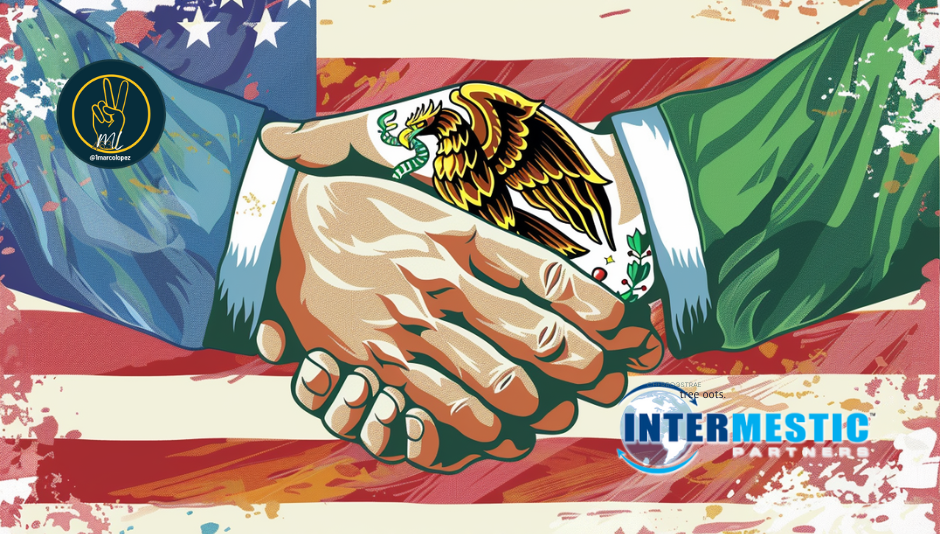
Navigating the Future of U.S.-Mexico Relations: Insights from Intermestic Partners
- Marco Lopez

- Apr 15, 2024
- 2 min read

In the aftermath of one of the most contested U.S. elections in history, the implications on international politics, especially U.S.-Mexico relations, are profound. As a cross-border expert and the founder of Intermestic Partners, I have witnessed firsthand the intricate dynamics of U.S.-Mexico relations, drawing from my experience as a former mayor of a border city in Arizona and former chief of staff at U.S. Customs and Border Protection.
The historical ties between the U.S. and Mexico, highlighted by key agreements like the Treaty of Guadalupe Hidalgo and the North American Free Trade Agreement, underscore a longstanding partnership that continues to evolve with each election cycle. Today, the spotlight intensifies on immigration, trade, and security—areas where the impact of U.S. elections is particularly significant.
Anticipating the foreign policy directions of the new administration is crucial. While Democrats generally advocate for inclusive immigration policies and collaborative trade agreements, Republicans often prioritize stringent immigration controls and an America-first trade stance. These differing perspectives could lead to various implications for bilateral relations.
The new U.S. administration's approach will shape key aspects of the relationship. Changes in immigration policy could either strain or strengthen ties. Trade, governed by the United States-Mexico-Canada Agreement, remains vital, with any shifts potentially impacting Mexico's economy significantly. Security cooperation also stands as a critical area, with joint efforts in combating drug trafficking and addressing cross-border threats essential for stability.
As Mexico navigates these changing tides, diplomatic and negotiation strategies become paramount. Establishing open channels for dialogue can help mitigate misunderstandings and foster a relationship built on mutual respect and cooperation. Moreover, strengthening domestic policies to ensure economic resilience, political stability, and effective security mechanisms will be crucial for Mexico to maintain a robust position.
In conclusion, the evolution of U.S.-Mexico relations in this new era of administration will require a balanced approach of persistence and adaptability. The spirit of partnership and mutual respect will be key to overcoming challenges and seizing opportunities.
As the CEO of Intermestic Partners, I invite businesses and policymakers to collaborate with us in navigating these complex waters. With our deep understanding and proven expertise in cross-border trade and development, Intermestic Partners is uniquely positioned to guide stakeholders through the nuances of these international dynamics.
For further insights and collaboration on U.S.-Mexico relations, I encourage you to contact me at Intermestic Partners, where expertise meets innovation in shaping the future of cross-border interactions.
.png)




Comments